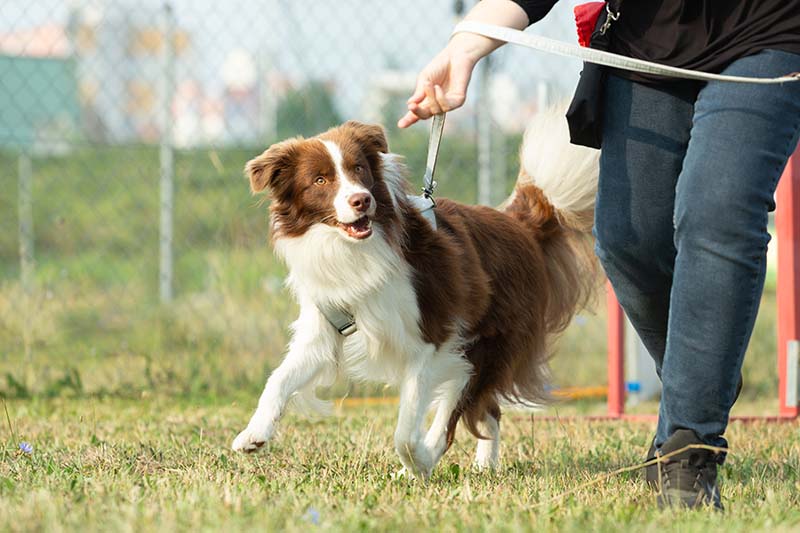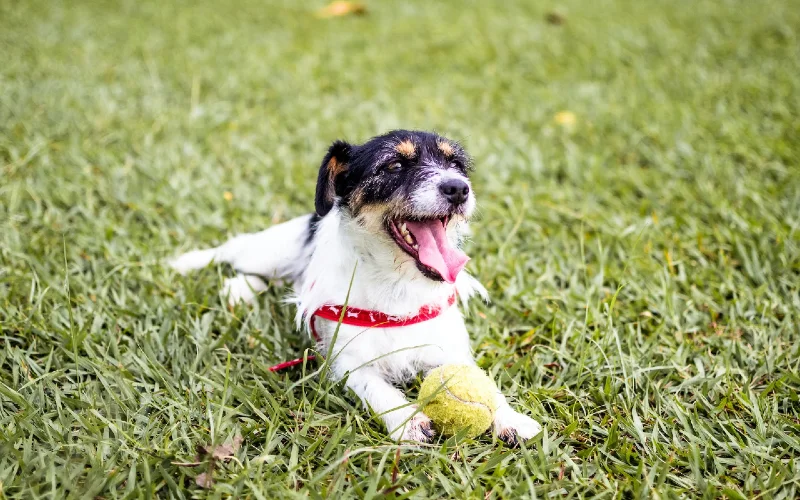Corgi vs. Chihuahua: Which One’s Right for Me?
Updated on
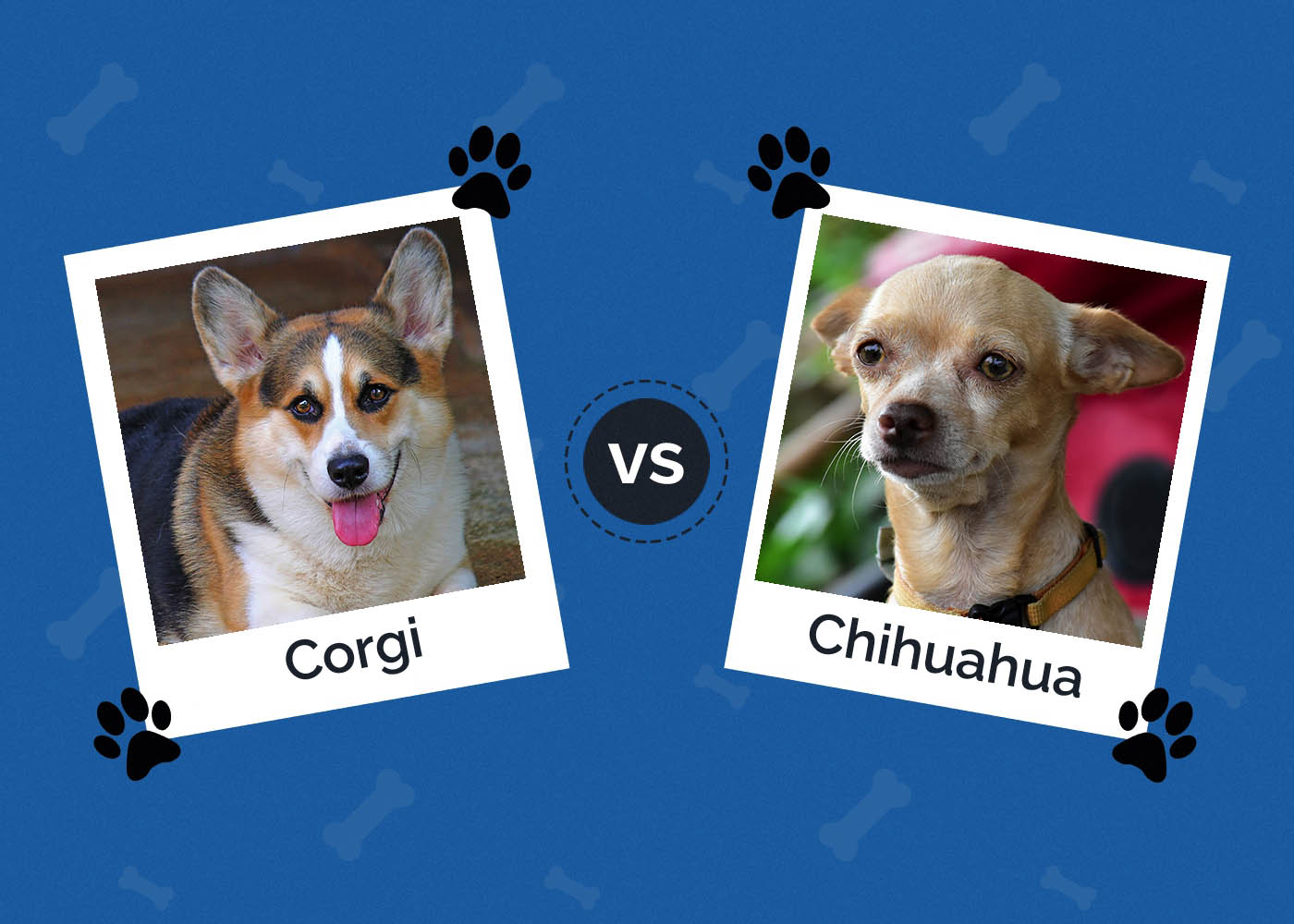
If you’re looking for a small, intelligent, loyal, easy-to-train dog, you can’t go wrong with a Corgi or a Chihuahua. Both beloved breeds fit all the adjectives above and several more. You should note, however, that there’s quite a difference between Chihuahuas and Corgis. While both would make excellent pets, the differences between the two might make you lean more toward one than the other.
To help you decide, below, you’ll find a treasure trove of information about both breeds. From their weight and size to their training, grooming needs, and known health issues, it’s all here. Read on to discover all the facts about Corgis and Chihuahuas, so you can adopt the breed that fits in with your family best!
Visual Differences

At a Glance
- Average height (adult): 10–12 inches
- Average weight (adult): 28–32 pounds
- Lifespan: 12–13 years
- Exercise: 2+ hours a day
- Grooming needs: Low to moderate
- Family-friendly: Yes
- Other pet-friendly: Yes
- Trainability: Highly trainable, eager to please, innate herding ability
- Average height (adult): 5–8 inches
- Average weight (adult): 5–6 pounds
- Lifespan: 14–16 years
- Exercise: 1+ hours a day
- Grooming needs: Very low
- Family-friendly: Sometimes
- Other pet-friendly: Sometimes
- Trainability: Difficult as they can be quite stubborn
Corgi Overview

One of the first things you notice about Corgis is that they have ridiculously tiny legs under a normal-sized (albeit long) body, like a Dachshund. Those legs, however, are powerful and enable Corgis to be excellent herding dogs, which is the job they’ve been trained to do for thousands of years.
Personality and Character
There are several terms you can use to describe the personality and character of a Corgi, including happy, playful, and, on occasion, silly. Corgis live for their pet parents but, even more, live to run around like mad. When the occasion arises, Corgis will also try to herd other creatures, including children and pets. One drawback to their outgoing personality is that Corgis must always be near their humans. A Corgi might not be a good choice if you plan to leave your pup alone daily because they can suffer from separation anxiety.
Training Needs
Dog experts and vets agree that Corgis are one of the easiest breeds to train. The main reason is their intelligence level, which is off the charts; Corgis are one of the smartest of all breeds. Another is that they live to please their pet parents and will do whatever you want so that they can make you happy.
Corgis can learn a new command quickly and will obey the command once learned. One minor drawback is that their herding instinct is incredibly strong. This instinct is so prominent that you may have to train them not to herd so that they don’t bother your children, other pets, and even you.

Grooming
Some dogs need excessive amounts of grooming to stay healthy and look good. Corgis shed but only shed profusely about once a year. Other than that, brushing them once a week and having them groomed once every 2 months should suffice. As for baths, unless your Corgi is playing in the mud or herding, once every other month will be plenty.
Health Issues
Corgis have more health issues than some breeds because they are a “dwarf breed” with short legs and a long spine. Some of the health issues that affect Corgis include:
- Epilepsy
- Cataracts
- Obesity (they need a lot of exercise!)
- Degenerative myelopathy
- Hip dysplasia (very common)
- Intervertebral Disc Syndrome

Suitable for: Large Families and Homes
Because of their outgoing and friendly nature and their need to be around people, Corgis are an excellent choice for large families with small children. Corgis can handle rough play and won’t snap at unruly kids. They’re also incredibly energetic and friendly with humans, other animals, and pets. They need a lot of activity, including walks, to stay healthy and happy, making them better suited to families that spend a lot of time outdoors and engaging in fun activities.
- Corgis love being around people
- One of the smartest of all dog breeds
- Very social dogs that get along with everyone
- Easy to train and learn quickly
- Learn on their own with ease
- Innate herding instinct can be problematic
- Need high levels of activity and attention
- Very vocal
- Can become obese if not given enough activity

Chihuahua Overview

Chihuahuas are well known for being tiny and fierce. They grow attached to their family but, in many cases, don’t take kindly to anyone else. That doesn’t hold for all Chihuahuas, and some can be genuinely affectionate. Below you’ll find more info about this diminutive but personality-filled breed.
Personality and Character
Because of their small size, Chihuahuas make perfect lap dogs, although when they’re young, they do need a lot of activity to stay happy and well-adjusted. One trait most Chihuahuas have is that they love attention and will do anything you ask as long as you’re focused on them intently.
However, one drawback of the breed is that Chihuahuas can be standoffish with strangers, including children. Being the smallest breed on the planet, many Chihuahuas have the classic “Napoleon complex.”
Training
One reason not to adopt a Chihuahua is that they require a high level of training due to their stubborn nature. Also, as small as they are, the average Chihuahua thinks it’s the Alpha and will do as they please unless you take the time to train them well. Getting them to obey commands will be difficult if you don’t show your Chihuahua that you’re the Alpha. If you dedicate the time needed, Chihuahuas are more than intelligent enough to become very well-trained pets and doting companions.

Grooming
The amount of grooming your Chihuahua needs will depend on whether it’s a short-haired or long-haired type. Experts recommend brushing either type at least once a week and bathing them once every 5 to 6 weeks. As for grooming, once every 2 to 4 months should be more than enough if you have a short-haired Chihuahua, but a long-haired one will need to be groomed more frequently.
Health Issues
Chihuahuas suffer from far fewer health issues than Corgis which is why they tend to live a few years longer. Hip dysplasia isn’t a big problem for the breed, although they have the propensity to become obese if they don’t get enough activity and playtime. According to the Royal Veterinary College in the United Kingdom, the most common health issues for Chihuahuas include the following:
- Dental disease
- Obesity
- Retained baby teeth
- Aggression
- Slipping kneecap
- Retained testicles (in males)
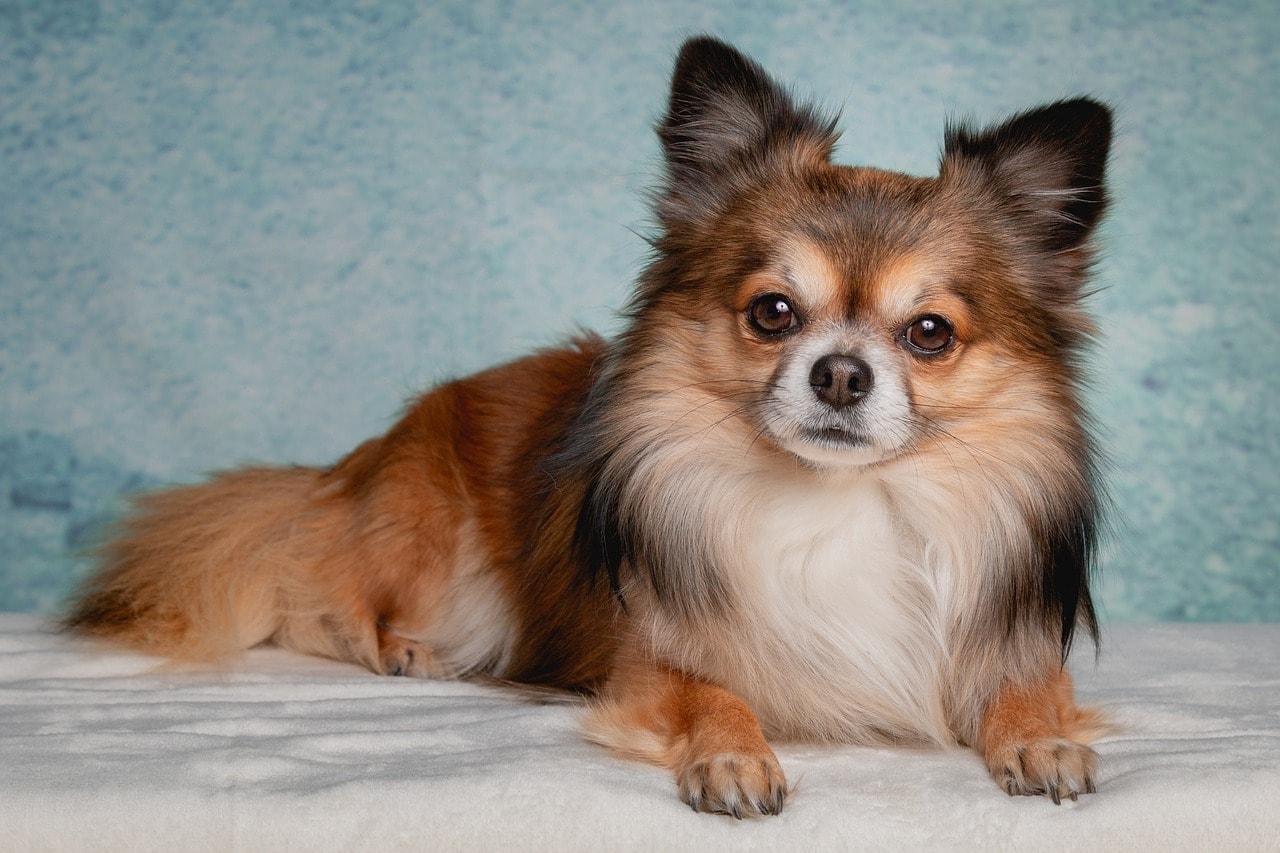
Suitable for: Small Families and Apartments
Singles and small families are the best choices for a Chihuahua. That’s because they don’t do well with small children and typically bond with one person only, which can be a problem if you have a big family. Chihuahuas don’t get along with other pets very well but will take excellent care of the human they love the most and be one of the most loyal dogs you’ve ever had the pleasure to adopt.
- Perfect apartment dogs due to their size
- Live long lives
- Grooming is relatively easy
- Make excellent watchdogs
- Great travel buddies
- Affectionate with their pet parents
- Can be standoffish with strangers
- Very stubborn
- Often difficult to train
- Not great in cold climates
- Usually, bond with only one person
- Tend to bark excessively
The Biggest Differences Between Corgis and Chihuahuas
You might have already noticed there are several differences between Chihuahuas and Corgis. Below we’ll take a quick look at the most glaring and important to know before making your choice.
Personality
Regarding personality, both Corgis and Chihuahuas are very vocal, love being around their families, and love to please them. However, while Corgis get along with everyone, Chihuahuas do not, which can be a problem if you have frequent visitors or have a big family.
Grooming
The grooming needs of Chihuahuas are substantially less than Corgis due to the Corgis’ double coat. Even long-haired Chihuahuas don’t shed nearly as much as a Corgi, and they don’t need as much brushing.

Space to Run Around
Chihuahuas have long been known to be excellent “apartment dogs” because they’re tiny and don’t need a big yard to run around and play. Yes, they need exercise, but a daily walk will usually be more than enough. Corgis, on the other hand, require substantially more exercise, which is why it helps to have a large yard for them to run and play.
Aggression
Besides their drive to herd, Corgis are amiable and calm dogs that aren’t prone to aggression, biting, or nipping. That’s the opposite of a Chihuahua, which is a breed known to be standoffish, nippy, and unfriendly to strangers. Both dogs will love you, but a Corgi will also love everyone else in your life.
Health Issues
Corgis suffer from quite a few more health issues than Chihuahuas because of their body types. Chihuahuas aren’t the healthiest breed, but as we’ve seen, they tend to live longer than Corgis because they have fewer health problems.
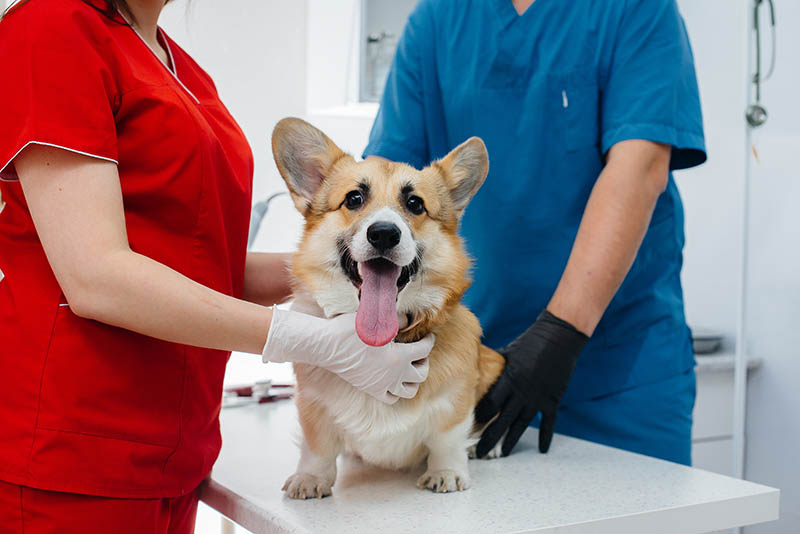
Trainability
This last category might be the most significant difference between Chihuahuas and Corgis. Both breeds are intelligent, but Corgis are like the Einstein of dogs, whereas Chihuahuas are about average. That makes Corgis much easier to train and will take you far less time than the stubborn Chihuahua.
Which of These Breeds Is Right for You?
Between Corgis and Chihuahuas, the right breed for you will come down to your family and living situation. Chihuahuas will be a good choice if you’re single or a couple with no children and no plans to have children in the near future. They do well in small homes and apartments, travel well, and make excellent companions but usually for one person more than anyone else.
Corgis will do well under the same circumstances but are better suited to larger families living in a larger home with a yard to play and run around. They get along well with everyone, including other dogs and pets. However, you might need to train their herding instincts out of them, lest you find them nipping at children and pets.
In short, small families in small homes will be perfect for the Chihuahua. Large families with large homes will be a better choice for Corgis. Whether you select a Corgi or Chihuahua, best of luck adopting a dog that becomes your best buddy and faithful companion.
Featured Image Credit: (L) Hel Destro, Shutterstock | (R) Sophon Nawit, Shutterstock



